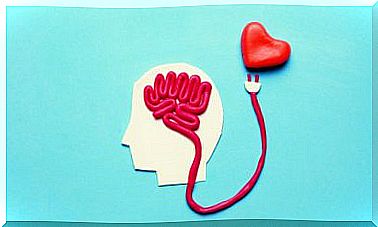Why Is Common Sense The ‘least’ Common Of The Senses?

Descartes pointed out that common sense was the best distributed quality in the world ; there was no person who did not have that judicious gift. The famous mathematician and philosopher understood that this dimension, beyond the idiosyncrasy of each one, allowed us to be clear to all equally that it was the correct thing, the acceptable thing and what was bordering on irrationality.
Now , as Voltaire pointed out in his day, common sense is actually the least common of the senses. What does this mean? Basically, that unanimity is not always given or perceived when it comes to understanding what is logical or expected in each situation. In some way, each one integrates into his being his own common sense, which, at times, does not pair with that of others.
On the other hand, the most curious thing of all is that it would be better for all of us if we were able to apply this simplicity in terms of values and principles of action, starting from a judicious and almost universal essence. However, sometimes, even knowing what would be the most acceptable in each situation, we do not apply it ; Either due to neglect, defiance, laziness, or because our minds are busy with other complex universes.
Common sense tells us, for example, that we should lead healthier lives; however, we don’t always put our health before immediate gratification. Common sense often whispers to us that this paper should go to the trash, that we should recycle more, that we should not read messages on our mobile while driving or that we should share quality time with the people we love. So, if we are clear about it, why don’t we do it?

What do we mean when we talk about common sense?
Psychology tells us that common sense is the capacity for discernment that every person has (or should have). Thanks to this ability, one can make coherent decisions based on logic and reason. Now, Albert Einstein himself once pointed out that much of that, which we call common sense, is nothing more than a set of prejudices that others inoculate us.
Be that as it may, this concept always seeks a purpose: the common good. With this competence, it is intended that we all have a practical sense with which to facilitate coexistence, avoid hostile conflicts and act for the welfare of all. However, where does common sense come from? In most cases, it starts not only from what others teach or dictate to us, as Einstein would say.
Actually, much of it comes from our own experience; of what we have seen, felt and lived. Therefore, it is clear that each one has traveled their own paths and experienced events that do not always resemble those of the rest. Hence your common sense, what is logical for you, may not be for me.
Three ways of understanding common sense
Throughout our history, the concept of common sense has been approached from many different angles. Understanding each of them will undoubtedly help us to have a little more perspective.
- Aristotle. For the Greek philosopher, common sense focused solely on our sensory experiences. In this way, all of us experience the same thing when we are faced with a stimulus (seeing a glass breaking, feeling the heat of the fire, the sound of the wind …). Common sense started for him from sensible objects, from what could be perceived through the senses.
- René Descartes. For the French mathematician and philosopher, it does not matter that each person comes from a different culture. All of us have a universal common sense, from which to judge and distinguish what is true from what is false, what is good from what is bad.
- The pragmatist philosophy. This approach that emerged in the 19th century gives us a more useful insight. According to this theoretical framework, common sense starts from the beliefs and experiences that we have on a day-to-day basis; that is to say, it basically starts from the context that surrounds us. And this, as expected, can vary depending on the weather and the conditions we face.

What does psychology tell us about common sense?
Adrian Furnham, a psychologist at University College London, wrote a very interesting book called Everything in the Mind: The Essence of Psychology (1996). Furnham’s premises are emphatic and warn us of the following: we should not take anything for granted : sometimes what is considered to be common sense is sheer nonsense.
What he tries to convey in his works is the need to always adopt a critical and realistic vision of reality. If we have to make decisions, it is best to analyze the context, the particularities of the case and what suits us or seems more successful, being that yes, judgments and reasonable. Letting ourselves be carried away by what is considered mere ‘common sense’ can lead us to more than one mistake.
Furnham recalls, for example, those facts that until not long ago were considered universal truths, such as that women were not smart enough to vote or that the best place for people with disabilities was to be confined in institutions. Therefore, common sense is not always well calibrated, it may be out of date or not fit our personal needs. Let us also use it with a certain critical judgment and understanding that the common sense of others can offer different conclusions than ours simply by telling or evaluating the situation from another point of view.









